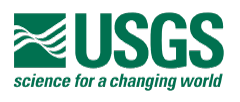Local Adaptation for Marsh Migration
Go to the Product(s)
Technical description
Coastal marshes serve a variety of important functions including flood control and spawning/rearing areas for marine life. These marsh systems are also critical breeding, wintering, and migratory stop-over sites for many avian Species of Greatest Conservation Need as identified in state wildlife action plans throughout the North Atlantic LCC region. Providing and maintaining potential for these tidal marsh habitats to migrate is a key approach for long-term adaptation to the more frequent and severe coastal flooding and gradual sea level rise anticipated under changing climatic conditions.
Work completed under this NALCC Demonstration Project included identification of the most resilient marshes in Maine (based on habitat size, diversity of marsh communities present, and migration potential, etc.); utilization of LiDAR to identify lands capable of supporting intertidal communities based on several sea level rise scenarios; and development of outreach materials for local planners and conservation partners. However, the focus of the project was to facilitate local actions necessary to accommodate future marsh migration needs though local land use policy and local conservation investment.
Local partners were engaged initially through regional meetings where climate change associated stressors to intertidal wetlands were presented together with simulations of marsh migration needs based on ground-truthed, LiDAR-based simulations. A subsequent request for proposals enabled potential partners to self-select for on-site technical assistance in crafting locally tailored adaptation approaches.
Case Studies and News Stories
Project Contact(s):
Steve Walker, Maine Department of Inland Fisheries and Wildlife
LCC Staff Contact(s):
Steve Fuller, Science Delivery Coordinator
| Resource Type: | Ecosystems |
|---|---|
| Conservation Targets: | Coastal and Marine |
| Conservation Framework: | Biological Planning, Conservation Delivery |
| Threats/Stressors: | Climate Change |
| Conservation Action: | Habitat and natural process restoration, Site/area management |


























